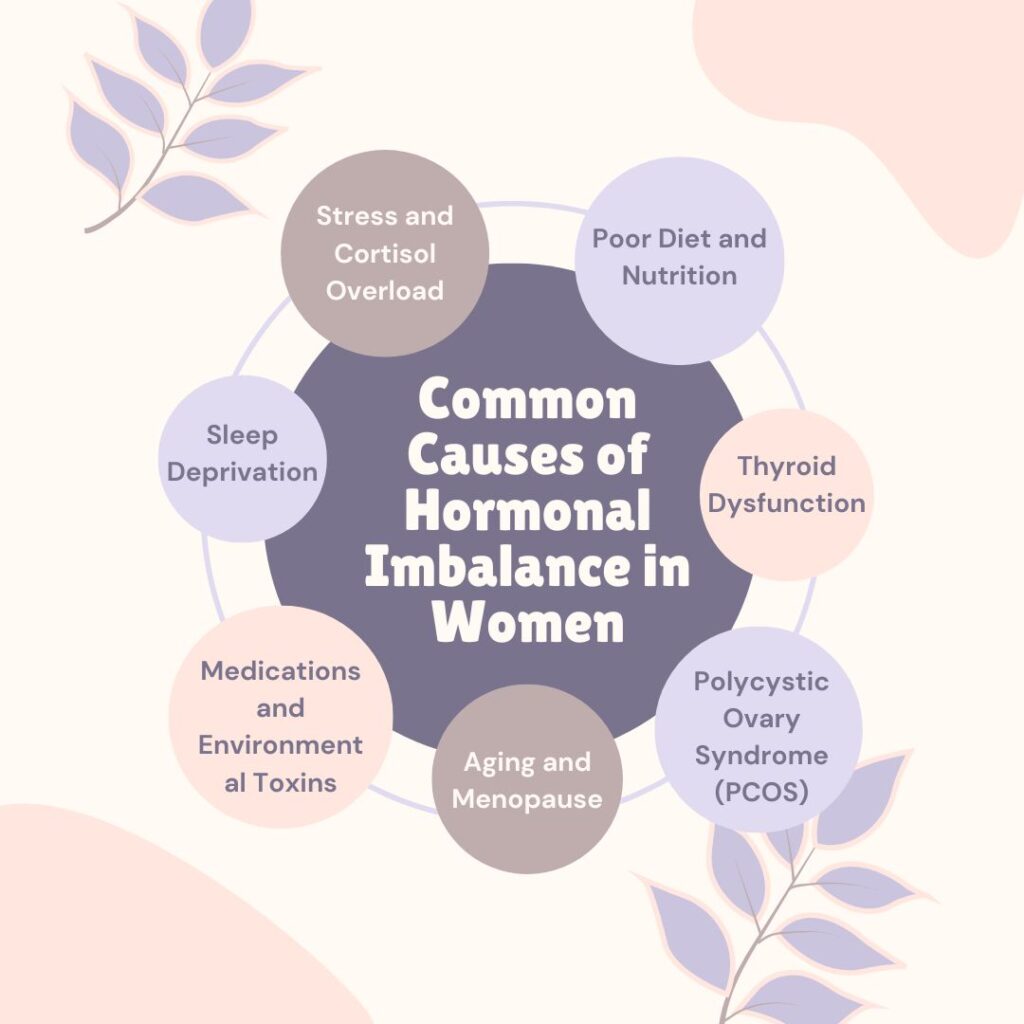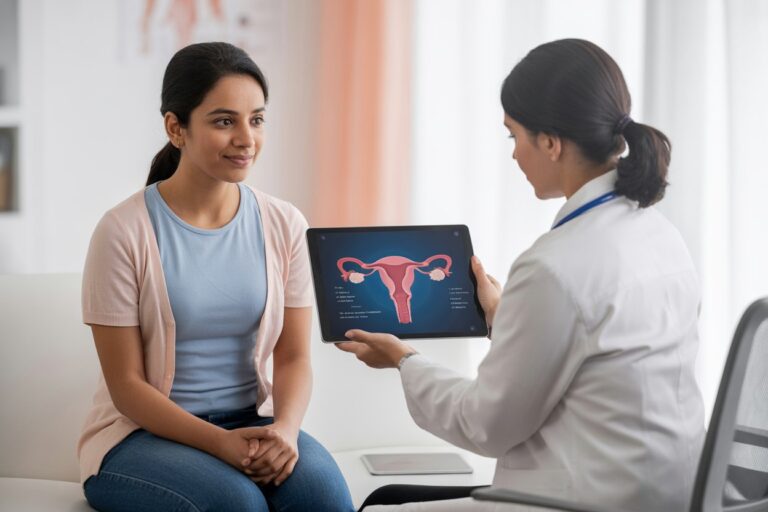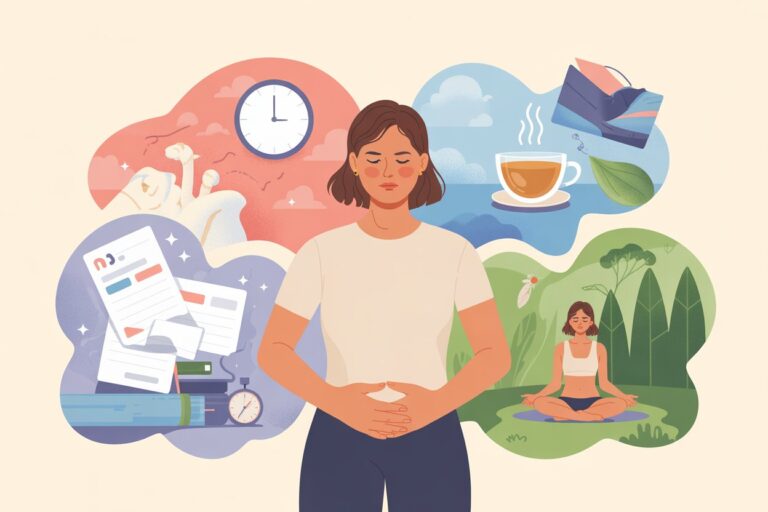Hormones are the body’s chemical messengers, regulating everything from metabolism and energy to mood, fertility, and overall wellbeing. When these hormones are out of balance, it can lead to hormonal imbalance, affecting your physical health, emotional state, and daily life. Recognizing and addressing hormonal imbalance early is crucial for long-term health.
What is Hormonal Imbalance?
Hormonal imbalance occurs when the body produces too much or too little of one or more hormones. Even small changes in hormone levels can disrupt your body’s normal functioning. Women commonly experience hormonal imbalance involving estrogen, progesterone, testosterone, thyroid hormones, insulin, or cortisol.
Estrogen and progesterone regulate menstrual cycles, ovulation, and fertility. Testosterone, although primarily a male hormone, also affects women’s energy levels, libido, and muscle strength. Thyroid hormones control metabolism, while insulin regulates blood sugar, and cortisol manages stress. Any disruption in these hormones can trigger physical and emotional symptoms, highlighting the importance of maintaining hormonal balance.
Common Causes of Hormonal Imbalance

1. Stress and Cortisol Overload
Chronic stress is one of the leading causes of hormonal imbalance in women. When the body perceives prolonged stress, the adrenal glands release excessive cortisol. This can disrupt estrogen and progesterone levels, leading to irregular periods, fatigue, and even difficulty conceiving. Managing stress is therefore essential in restoring hormonal balance.
2. Poor Diet and Nutrition
Diet plays a significant role in maintaining hormone health. Excess sugar, refined carbs, and processed foods can cause insulin spikes and insulin resistance, contributing to hormonal imbalance. On the other hand, a balanced diet rich in whole foods, healthy fats, and fiber supports hormone regulation and overall wellbeing.
3. Thyroid Dysfunction
Thyroid disorders, such as hypothyroidism or hyperthyroidism, are common contributors to hormonal imbalance. Thyroid hormones regulate metabolism, energy, and menstrual cycles. Any imbalance can cause weight fluctuations, fatigue, mood changes, and irregular periods, which often require medical intervention.
4. Polycystic Ovary Syndrome (PCOS)
PCOS is one of the most prevalent causes of hormonal imbalance in women of reproductive age. It results in elevated androgens (male hormones) leading to symptoms like irregular menstrual cycles, acne, hair thinning or excessive hair growth, and weight gain. Early diagnosis and lifestyle interventions can significantly improve symptoms.
5. Aging and Menopause
Natural hormonal changes during perimenopause and menopause often cause hormonal imbalance. Women may experience hot flashes, night sweats, mood swings, and changes in metabolism as estrogen and progesterone levels decline. Understanding these changes and supporting your body through diet, exercise, and lifestyle can help manage symptoms.
6. Medications and Environmental Toxins
Certain medications, contraceptives, and environmental toxins like plastics and chemicals in personal care products can interfere with hormone production, contributing to hormonal imbalance. Limiting exposure and making informed choices can help reduce this risk.
7. Sleep Deprivation
Lack of quality sleep is a major contributor to hormonal imbalance. Poor sleep disrupts cortisol, insulin, and hunger-regulating hormones like leptin and ghrelin. Chronic sleep deprivation can worsen fatigue, mood swings, weight changes, and menstrual irregularities. Prioritizing 7–9 hours of restful sleep each night is essential for restoring hormonal balance.
Signs and Symptoms of Hormonal Imbalance
Recognizing the signs of hormonal imbalance can help you seek timely intervention. Common symptoms include:
- Irregular or heavy menstrual cycles
- Sudden weight gain or difficulty losing weight
- Mood swings, anxiety, or depression
- Persistent fatigue and low energy
- Acne, hair thinning, or unwanted hair growth
- Sleep disturbances
- Low libido

Even subtle changes like changes in skin texture, sleep quality, or digestion may indicate underlying hormonal imbalance, so paying attention to your body is essential.
How to Restore Hormonal Balance Naturally
Lifestyle changes and natural remedies can play a significant role in correcting hormonal imbalance and improving overall health.

1. Eat a Hormone-Friendly Diet
A nutrient-rich diet supports hormone production and balance. Include vegetables, fruits, whole grains, nuts, seeds, and healthy fats like avocado, olive oil, and coconut oil. Avoid refined sugar, processed foods, and excessive caffeine. Phytoestrogen-rich foods like flaxseeds, soy, and lentils can help support estrogen balance, addressing common causes of hormonal imbalance.
2. Manage Stress
Stress management is key in preventing hormonal imbalance. Yoga, meditation, deep breathing exercises, and mindfulness can reduce cortisol levels, helping restore estrogen and progesterone balance. Prioritizing sleep and taking small breaks during the day are equally important.
3. Exercise Regularly
Regular physical activity helps regulate insulin, cortisol, and thyroid hormones. Both cardio and strength training support weight management, improve mood, and reduce the risk of hormonal imbalance.
4. Support Gut Health
Gut health is closely linked to hormone regulation. Consuming probiotics like yogurt, kefir, and fermented foods, along with fiber-rich fruits and vegetables, can reduce inflammation and aid hormone metabolism, helping combat hormonal imbalance naturally.
5. Monitor and Track Your Cycle
Tracking your menstrual cycle with period trackers can reveal patterns that indicate hormonal imbalance. Logging symptoms, mood changes, and physical signs helps detect irregularities early and allows for timely interventions.
6. Seek Professional Guidance
While lifestyle adjustments help, consulting a gynecologist, endocrinologist, or nutritionist is crucial to assess and treat hormonal imbalance. Blood tests, hormone panels, and personalized guidance ensure long-term health and fertility support.
When to See a Doctor
Certain symptoms of hormonal imbalance require prompt medical attention:
- Very irregular or absent periods
- Severe acne or sudden hair loss
- Persistent fatigue or mood swings
- Unexplained weight gain or loss
- Difficulty conceiving
Early diagnosis and treatment can prevent complications like infertility, metabolic disorders, or thyroid disease.
Key Takeaways
Hormonal imbalance is common but manageable. Understanding your body, monitoring your cycle, making dietary and lifestyle adjustments, and seeking professional guidance when necessary can help restore balance and enhance overall wellbeing.
Remember, every woman’s hormonal journey is unique. Listening to your body, tracking changes, and taking proactive steps are essential to maintaining hormonal harmony.








One Comment